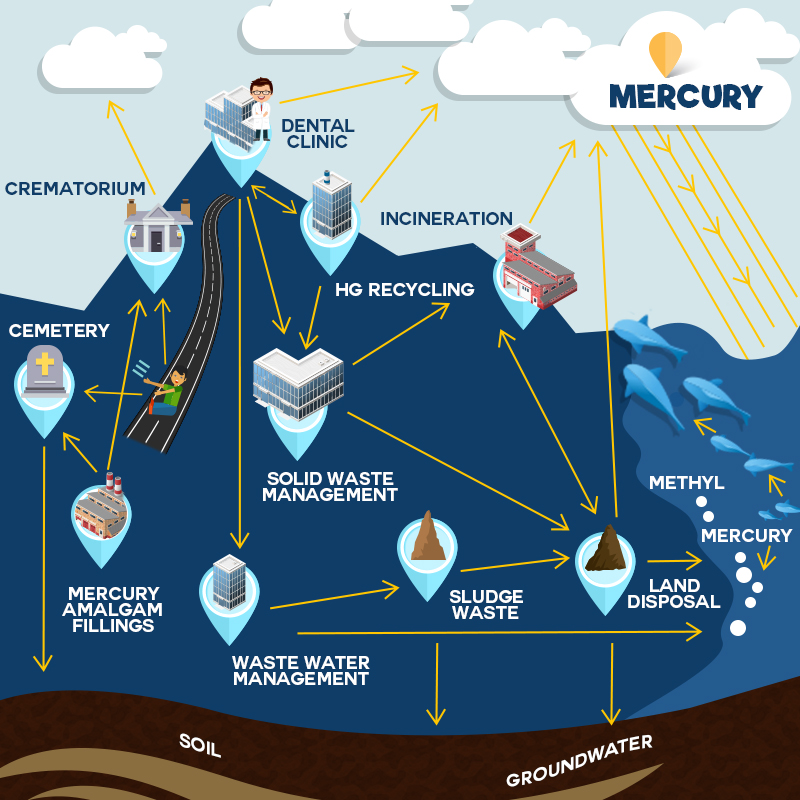Environmental Problems Associated with Amalgam
Mercury amalgam dental fillings have an impact far beyond your mouth – they are one of the most significant sources of mercury pollution today.
Quantity of dental mercury
Between 270 and 341 tonnes of mercury are consumed globally for use in amalgam each year. Accounting for at least 10% of global mercury consumption, amalgam is among the largest consumer uses of mercury in the world.

Pathways to the environment
Dental mercury enters the environment via many different pathways. For example, dental mercury pollutes:
- Air via human cremation, sewage sludge and waste incineration, and dental clinic emissions
- Water via human waste disposal and dental clinic releases
- Land via landfills, human burials, and fertilizers

Environmental health risks
After amalgam enters the environment, certain microorganisms can change its elemental mercury into methylmercury, a highly toxic form of mercury that builds up in fish, shellfish, and people that eat fish. Methylmercury can damage children’s developing brains and nervous systems even before they are born
Environmental costs
After environmental costs are taken into account, amalgam is significantly more expensive than the mercury-free fillings. According to the 2012 report The Real Cost of Dental Mercury, an amalgam filling can cost up to $87 (USD) more than an equivalent mercury-free composite filling, once the full lifecycle costs of each filling is taken into account.
Minamata Convention
The Minamata Convention on Mercury is a global treaty to protect human health and the environment from the adverse effects of mercury. The Convention requires each party to “phase down the use of dental amalgam.” It also addresses amalgam in Annex A, where it can be amended later to set a phase-out date for this toxic mercury product. The United States government has signed this Convention, but so far taken no step to effectively phase down amalgam use.